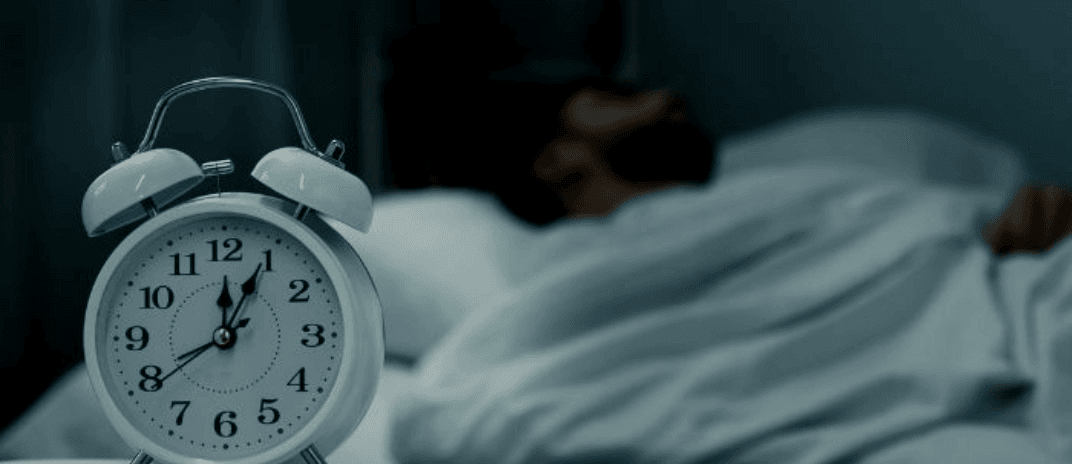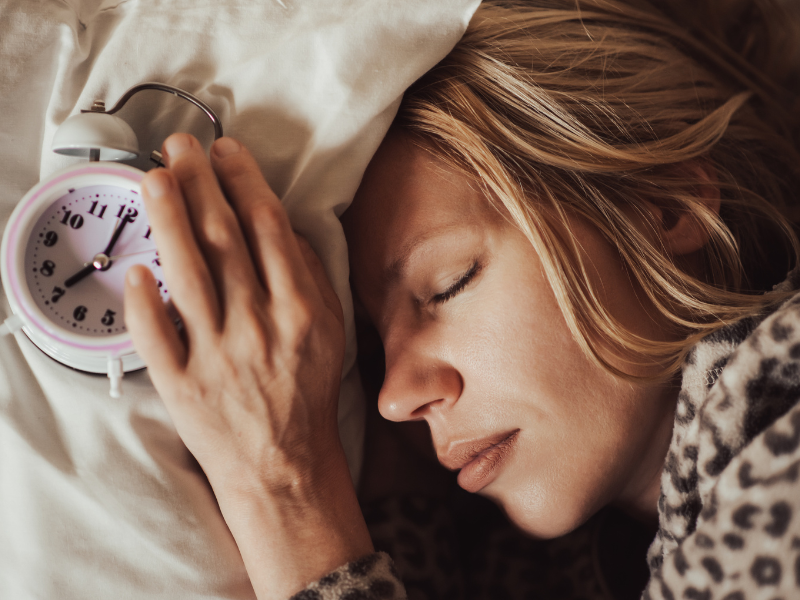


The circadian rhythm, or our internal “clocks” matter more than we might think. It is important in helping us adapt to changes in the environment. When our circadian rhythm is misaligned, it can lead to different problems such as the ability to stay awake or cause health issues. So is there a way for resetting biological clocks?
In this article, we will discuss further on what circadian rhythms are, how it can affect us and ways to reset our biological clocks.

Circadian rhythms are 24-hour cycles that are part of the body’s internal clock, running in the background to conduct essential functions and processes. One of the most significant and prominent circadian rhythms is the sleep-wake cycle. It helps us to be vigilant during the day and prepares us for sleep during the night.
Various systems of the body follow circadian rhythms that are synchronized with a master clock in the brain. However, environmental cues, especially light, directly impact this master clock. This is the reason why day and night cycles influence our circadian rhythms.
When adequately aligned, a circadian rhythm can uphold consistent and restorative sleep. However, when this circadian rhythm goes through disruption, it can create serious sleeping problems, including insomnia. It can also influence our digestive systems, hormonal activities, and even body temperatures.

Circadian rhythms optimize the body’s processes at various points during a 24-hour period. The term circadian originates from the Latin phrase “circo diem,” which implies “around a day.”
Circadian rhythms is regulated by a circadian clock, which coordinates biological and mental systems throughout the body. For example, the digestive system produces proteins to match the typical timing of meals.
A master clock—i.e., a circadian pacemaker located in the brain—connects the circadian rhythms throughout the body specifically, it is found in the suprachiasmatic nucleus (SCN) which is in a part of the brain called the hypothalamus.
The SCN is highly sensitive to light, which serves as a critical external cue influencing the signals sent by the SCN to regulate internal body clocks.
Biological clocks regulate the timing of bodily processes, including circadian rhythms. A circadian rhythm affects a biological clock, but not all biological clocks are circadian. For instance, plants adjust to varying seasons using a biological clock with timing distinct from a 24-hour cycle.
When people discuss circadian rhythm, it is most often in the context of sleep. Circadian rhythm affects our sleep-wake cycle.
During the day, light exposure causes the master clock to send signals for our generate alertness and help keep us awake and active. Then, as night falls, the master clock initiates melatonin production, a hormone that promotes sleep. Next, it keeps transmitting signals that help us stay asleep through the night.
In this manner, our circadian rhythm aligns our sleep and alertness throughout the day and night. Moreover, it also creates a regular cycle of restorative rest that enables enhanced daytime activity.

While the sleep-wake cycle is the most prominent circadian rhythm, the 24-hour internal clocks are integral to all body systems.
Evidence has shown that there is a connection between metabolism and weight by regulating blood sugar and cholesterol. It also influences mental health, including the risk of psychiatric illnesses like depression and bipolar disorder. Moreover, any disruption in circadian rhythms can have the potential for neurodegenerative diseases like dementia.
There are indications that circadian rhythms can important influence the immune system and DNA repair processes to prevent cancer. In addition, early-stage research indicates that circadian cycles can impact the effectiveness of anti-cancer drugs. Thus, new medications may be able to harness biological clocks to eradicate cancer cells.

The research concludes that continuous or occasional disruption of sleep patterns can create circadian rhythm sleep disorders. The disruption results from malfunctioning in our “internal body clock” or a mismatch between this clock and the external environment. Various situations triggering a circadian rhythm sleep disorder include:
Daylight Saving Time: About a quarter of people worldwide experience time shifts related to daylight saving time. Although these shifts only move the clock by one hour, research shows a short-term rise in fatal car accidents, workplace injuries, and heart attacks. These eventualities may occur due to circadian disruptions.
Jet Lag: Jet lag occurs when an air traveler’s circadian rhythm becomes out-of-sync with the destination time zone. It becomes even more severe for travelers crossing multiple time zones. Consequently, a traveler feels sleepy during the day and awake at night.
Shift Work: Shift workers typically operate night or early morning shifts. They often experience circadian rhythm disruptions as they work when it is dark outside and sleep during daylight hours.

During this sleep disorder, we go to sleep and wake up more than two hours later than what is typically considered a normal sleep-wake cycle. For instance, we are a “night owl” who may not fall asleep until 2 am but then sleep until 3 pm.
During this sleep disorder, we fall sleep in the early evening (6 to 9 pm) and wake up in the early morning (2 to 5 am).

In this disorder, our body’s internal clock disrupts due to long air travel to a destination two or more time zones away. This sleep-wake cycle disruption makes adjusting and functioning in the new time zone challenging. Eastward journey is more difficult than westward travel because delaying sleep is easier than advancing.
We may have this disorder if we frequently rotate shifts or work at night. These work schedules conflict with our body’s natural circadian rhythm, making it hardly to adjust to the transformation. Shift work disorder creates a constant or recurrent sleep interruption pattern resulting in insomnia or excessive sleepiness. This sleep disorder includes individuals who have night or early morning shifts.
For instance, extended shift durations and interrupted sleep are integral parts of anesthetists’ and intensivists’ professional lives. Despite recommendations in the USA and Europe to limit work hours, the amount worked can still lead to acute and chronic sleep deprivation may still present a potential hazard to patients’ safety and doctors’ health. Sleep deprivation of over 24 consecutive hours produces equivalent to a blood alcohol concentration of 1 g/L on simulated driving performance.

This sleep disorder creates an undefined sleep-wake cycle. As a result, we may take several naps during a 24-hour period to tackle this disorder. Symptoms include ongoing (chronic) insomnia, excessive sleepiness, or both. People with neurological conditions endure this disorder, such as dementia, in nursing home residents, children with intellectual disabilities, and those with traumatic brain injuries.
We keep the same sleep and awake time during this sleep disorder, but our “internal clock” is longer than 24 hours. As a result, the actual sleep-wake cycle varies daily, with one to two hours of delays each day. This disorder occurs most commonly in visually impaired individuals.
There are different ways to treat circadian rhythm sleep disorders and to reset our biological clocks. Most treatment plans necessitate a combination of approaches. Treatment options include:

Now that you know more about how the circadian rhythm works, you can work your way to restoring your natural sleep cycles. With little changes to your lifestyle and sleep habits, you can worry less about being sleep-deprived and focus on improving your overall sleep quality.
Additionally, if you need more help, you can always try out ShutEye®. It is a patented sleep-tracking app that helps you to keep track of your sleep cycle and provides detailed analysis. It also comes with a smart alarm clock feature if you have trouble getting up in the morning. So, try it now for free!
Reddy S, Reddy V, Sharma S. Physiology, Circadian Rhythm. [Updated 2023 May 1]. In: StatPearls [Internet]. Treasure Island (FL): StatPearls Publishing; 2024 Jan-. Available from: https://www.ncbi.nlm.nih.gov/books/NBK519507/